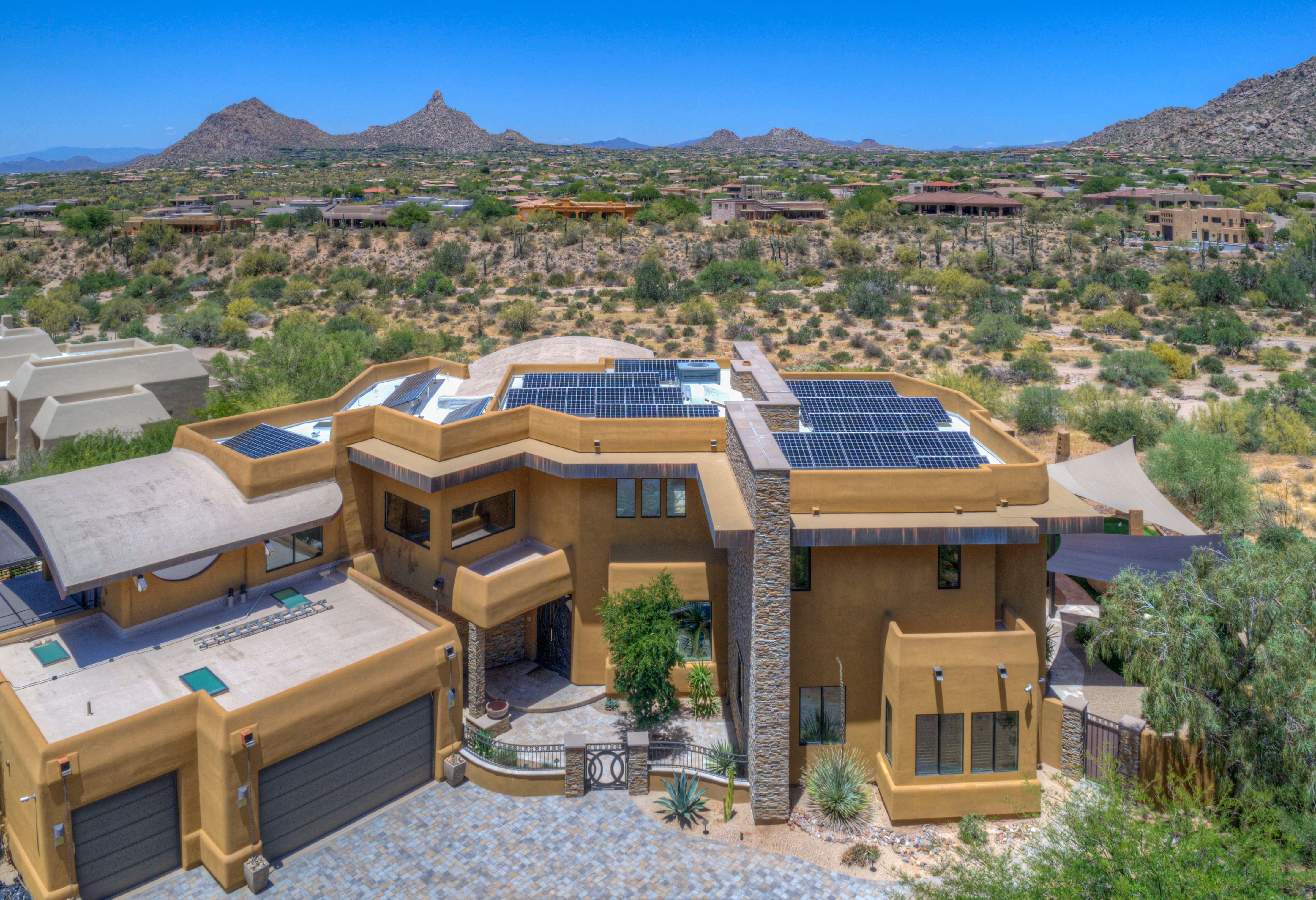By Alison Bailin Batz.
There are more than 140,000 homes in Arizona that have made the switch to solar.
“Everyone has their own unique reason for switching to solar. Many are drawn to solar for the savings on their utility bill. Others are looking to be less dependent on utility companies—and their rising rates. Of course, many homeowners go solar to decrease their carbon footprint as well,” says Chris Wood.
And he would know.
In 2014, Wood, together with partners Joe Cunningham, Terry Rials, and Jake Stainbrook founded Sunny Energy.
“We are a residential solar company that focuses on delivering superior performance by using the best design, installation, equipment, and financing options to ensure the best combination of value and performance,” says Cunningham, noting that recently, the business caught the attention of Solar Power World Magazine
, earning a spot in the industry magazine’s “top solar contractors in the United States.”
Each of the company’s founders brings a unique perspective and expertise to the company—perspective not easily replicated at other solar energy companies.
The Team
Wood serves as business development director for Sunny Energy, responsible for the company’s business development needs in Arizona and California. This includes the recruiting, hiring and training of the sales team, as well as conducting a financial analysis of the products Sunny Energy creates and sells. He also oversees Sunny Energy’s vendor relations.
Cunningham is the director of operations for Sunny Energy. An industry leader, Cunningham has spent more than 11 years in the solar energy and photovoltaics (PV) integration business, and 20 more in wireless telecom, managing, at various times throughout his career, operations, business development, maintenance programs, and sales and marketing.
Rials is the director of field operations for Sunny Energy, responsible for customer service operations, troubleshooting, overseeing the installation teams, and creating operating systems that help them become more efficient on each job. He is also the company’s licensed electrical contractor and has more than 20 years of experience in electrical and other building trades.
Stainbrook is the operations manager for Sunny Energy. He manages field operations and logistics for the company’s construction teams, including scheduling, determining equipment needs and quality control on each site.
“Terry and Jake were instrumental in developing techniques and procedures that have enabled our residential solar install process to be as seamless as possible,” says Wood. “From the initial meeting with the homeowner to the final installation, we are able to maximize efficiencies by reducing the installation time at the customers’ homes and increasing the company’s capacity as the demand for solar energy systems continues to grow across the state.”
The Process
According to Rials, going solar can definitely seem overwhelming, but Sunny Energy believes it doesn’t have to be.
“Our process is thorough, yet simple, making sure our customers know exactly how it all comes together and stay in constant communication throughout,” says Rials.
Stainbrook adds, “We start by getting to know your goals, whether it be saving money, energy independence, saving the environment, or all three. Then we conduct a site survey where our inspectors will measure and assess the roof. We then move on to the system design, based on the home’s energy usage and available space.”
Afterward, the team completes the necessary permits and applies for the utility interconnection agreement. Next is the actual installation and City inspection.
“Once completed, we establish a connection with the utility company and conduct final testing to ensure the system is operating properly. Then you’re creating your own clean energy,” says Stainbrook.
Is Solar Right For You?
So, how does one determine if the time is right to go solar?
According to Sunny Energy, here are some things to consider when thinking about making the switch:
Location. Location. Location.
Phoenix averages 3,872 hours of sunshine per year, thus making the Valley of the Sun a prime choice when it comes to maximizing the use of solar energy. After all, more direct sunlight equals more energy.
Financial Considerations
As most Valley residents know, summer electric bills can make up a large portion of your monthly expenses. Imagine all the other ways you could spend your money if your bill was significantly reduced or eliminated altogether. Many solar system owners actually see negative utility bills a few months each year, meaning the utility company actually pays THEM!
Environmental Benefits
Unlike conventional energy, which relies on fossil fuels such as coal and natural gas, solar energy does not emit any harmful pollutants into the atmosphere. In fact, a typical residential solar panel system will eliminate three to four tons of carbon emissions each year—the equivalent of planting more than 100 trees annually.
Local Incentives
Qualified residents who install solar may be eligible for both state and federal incentives. Currently, Arizona provides a 10% tax credit, up to $1,000, in order to offset the cost of installation. Additionally, homeowners can take advantage of a 30% federal tax credit through the end of 2019.
It is important to note that solar may not be for everyone. Not all homeowners have the right conditions to maximize the financial and environmental benefits.
“When we meet with prospective customers, we ask a variety of questions to determine whether solar is going to be a good fit,” says Wood. “Sometimes we do tell customers that solar may not give them the return on investment they are looking for. We want to make sure that when our customer is making this investment, they have all the facts before making a decision.”
To learn more, visit www.sunnyenergy.solar.
Alison Bailin Batz is a freelance writer on interesting people, places and things throughout Arizona, as well as an avid travel writer. She has a lot to say about everything, all of the time. Just try to stop her. abailin@hmapr.com
Photos provided by Sunny Energy







